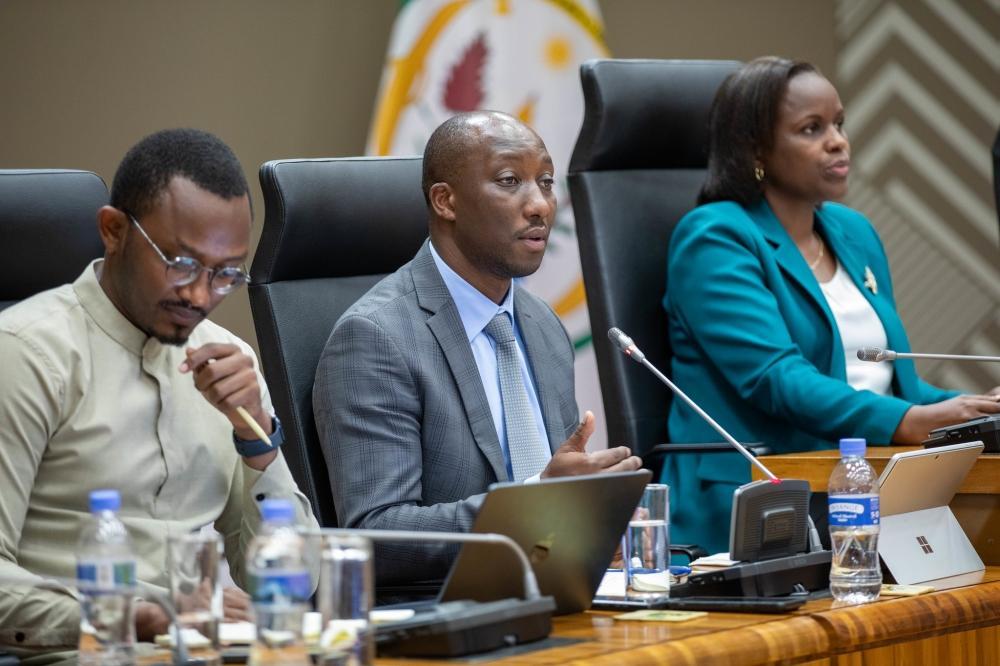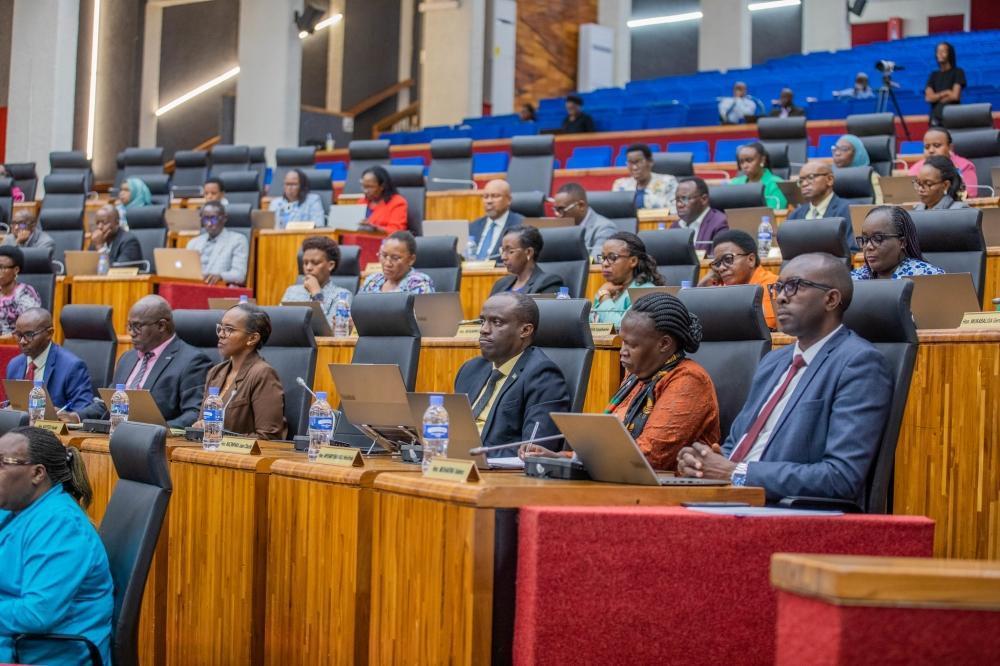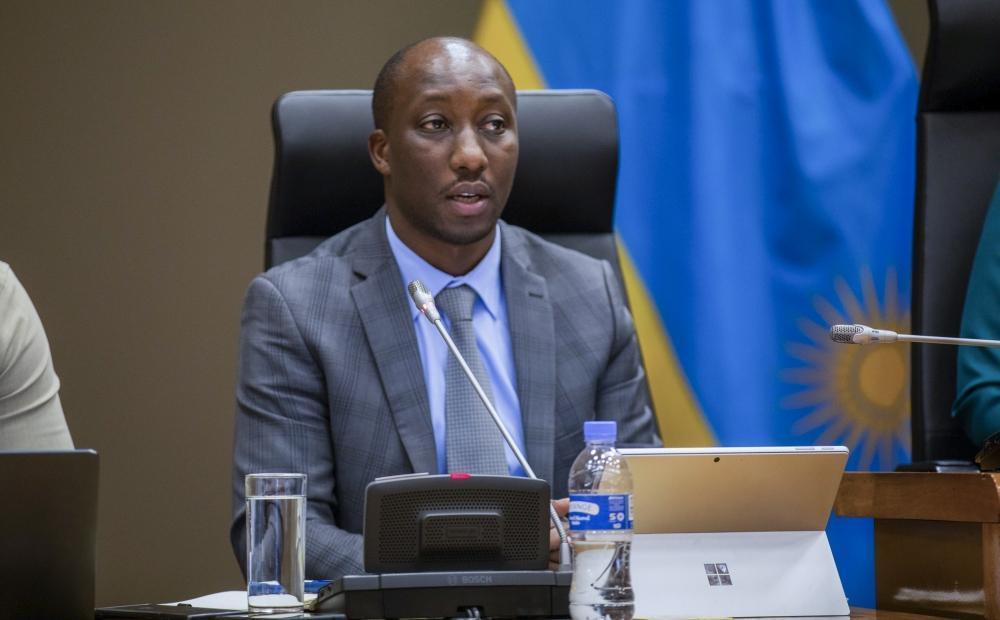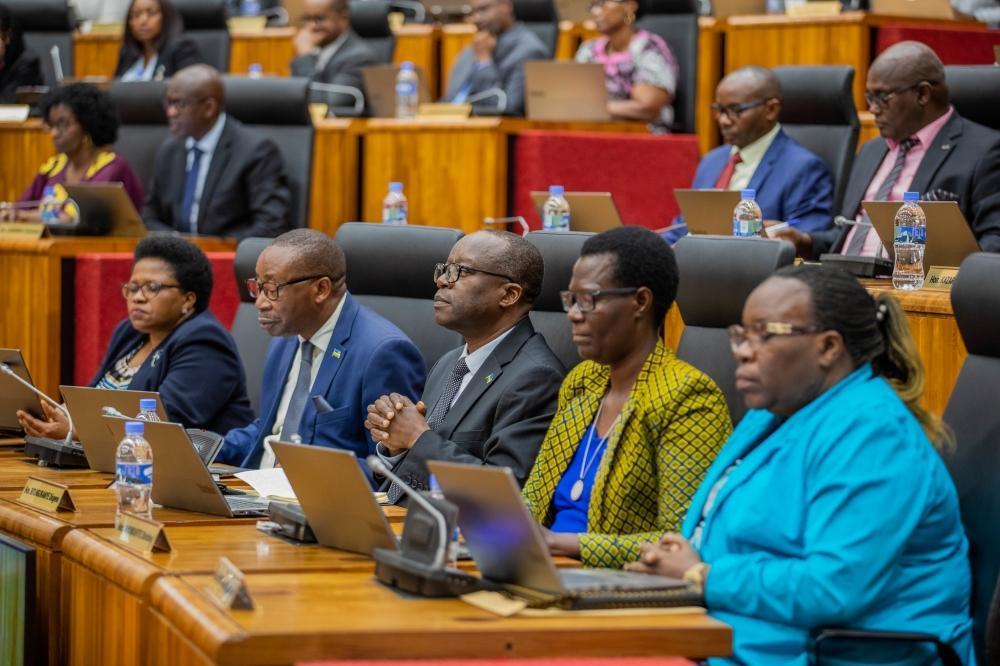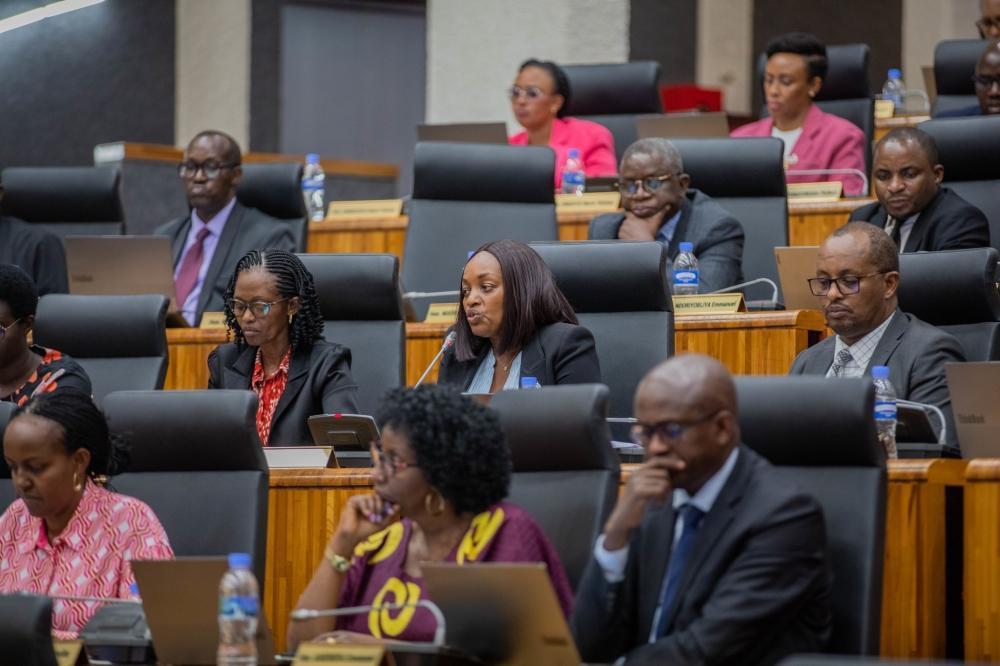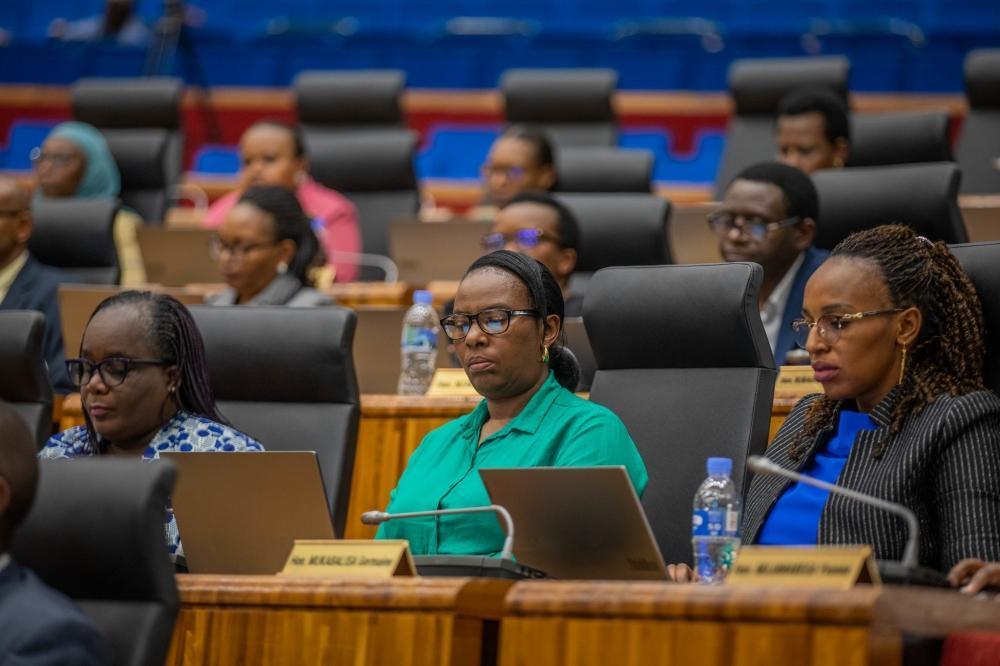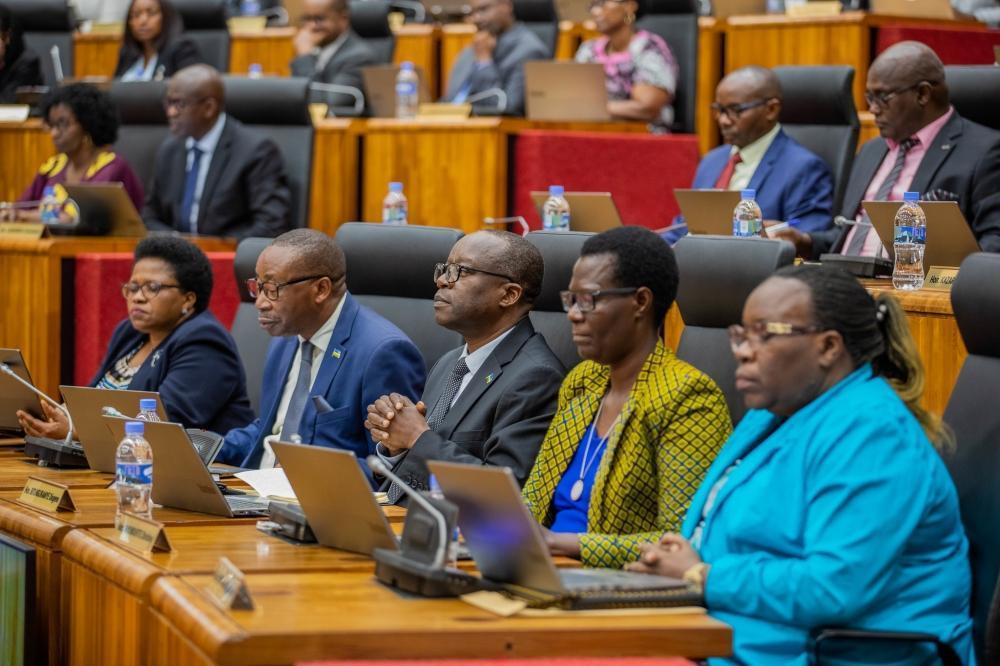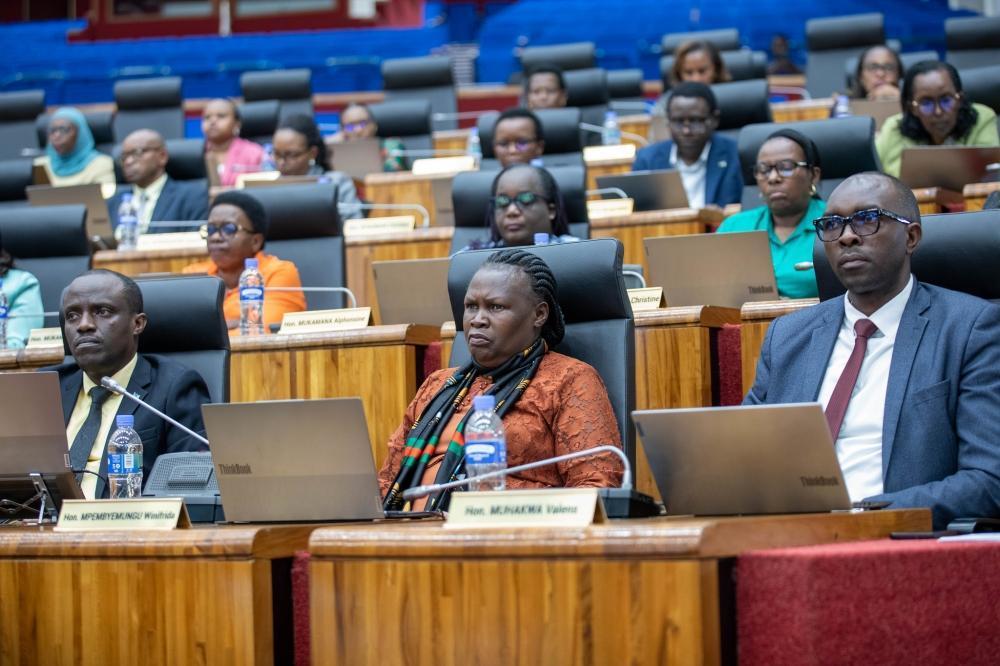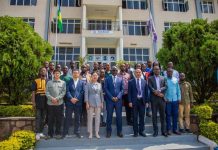Africa-Press – Rwanda. The City of Kigali is placing public transport at the centre of its new urban development plan as officials move to tackle persistent traffic congestion.
As he presented the National Urbanisation Policy to Parliament on Tuesday, November 11, the Minister of Infrastructure, Jimmy Gasore, said the government’s approach is anchored in prioritising efficient, reliable, and high-capacity transport systems as the city expands.
MPs folllow Minister Gasore’s presentation on the National Urbanisation Policy on Tuesday, November 11.
“We are addressing traffic congestion by improving the management of traffic lights, and there is already a plan to connect them all to ensure proper coordination,” Gasore told a Plenary Session of the Chamber of Deputies on Tuesday afternoon.
“We are also enhancing the management of road intersections and strongly encouraging the use of public transport.”
He noted that in 2023, Rwanda and Japan signed a grant agreement worth $14.6 million to establish a new transport control system aimed at reducing traffic congestion and improving mobility in Kigali.
The project of the Intelligent Transport System consists of developing a traffic control system and signal control system, together with intersection improvements.
Gasore emphasised that while it is hard to eliminate traffic congestion in cities, Rwanda aims to reduce it by making public transport the most convenient option for commuters.
He highlighted plans to introduce more reliable buses equipped with real-time tracking systems and route coverage that reaches all neighbourhoods.
Minister Gasore during his presentation on Tuesday.
He added that private car use should become a matter of preference rather than necessity, and that the government will prioritise “means of transport that carry large numbers of people at once.”
Beyond buses, the policy encourages workplace car-pooling through shared vans, which will also be given priority on the road network.
Meanwhile, the City of Kigali had previously announced that it was set to pilot Dedicated Bus Lanes (DBL). Dedicated bus lanes are designed to separate buses from general traffic, allowing them to bypass congestion and move more freely through the city.
The 2025 National Urbanisation Policy is a revision of the 2015 framework, setting out a long-term vision aimed at building well-managed, inclusive, and climate-resilient cities capable of supporting economic transformation.
Under the new strategy, the country seeks to increase its urban population from 27.9 per cent in 2022 to 52.7 by 2035, and 70 per cent by 2050. Officials say such rapid urbanisation must be matched with coordinated spatial development, affordable housing, modern infrastructure, and efficient mobility systems.
One of the four pillars of the policy is livability, which focuses on creating cities that are practical, safe, and comfortable for residents. Transport is a central part of this pillar, as improved mobility is seen as key to reducing travel time, lowering emissions, and boosting productivity, the minister said.
The minister presented the National Urbanisation Policy to Parliament on Tuesday, November 11.
Minister Gasore said the government’s approach is anchored in prioritising efficient, reliable, and high-capacity transport systems as the city expands.
For More News And Analysis About Rwanda Follow Africa-Press

